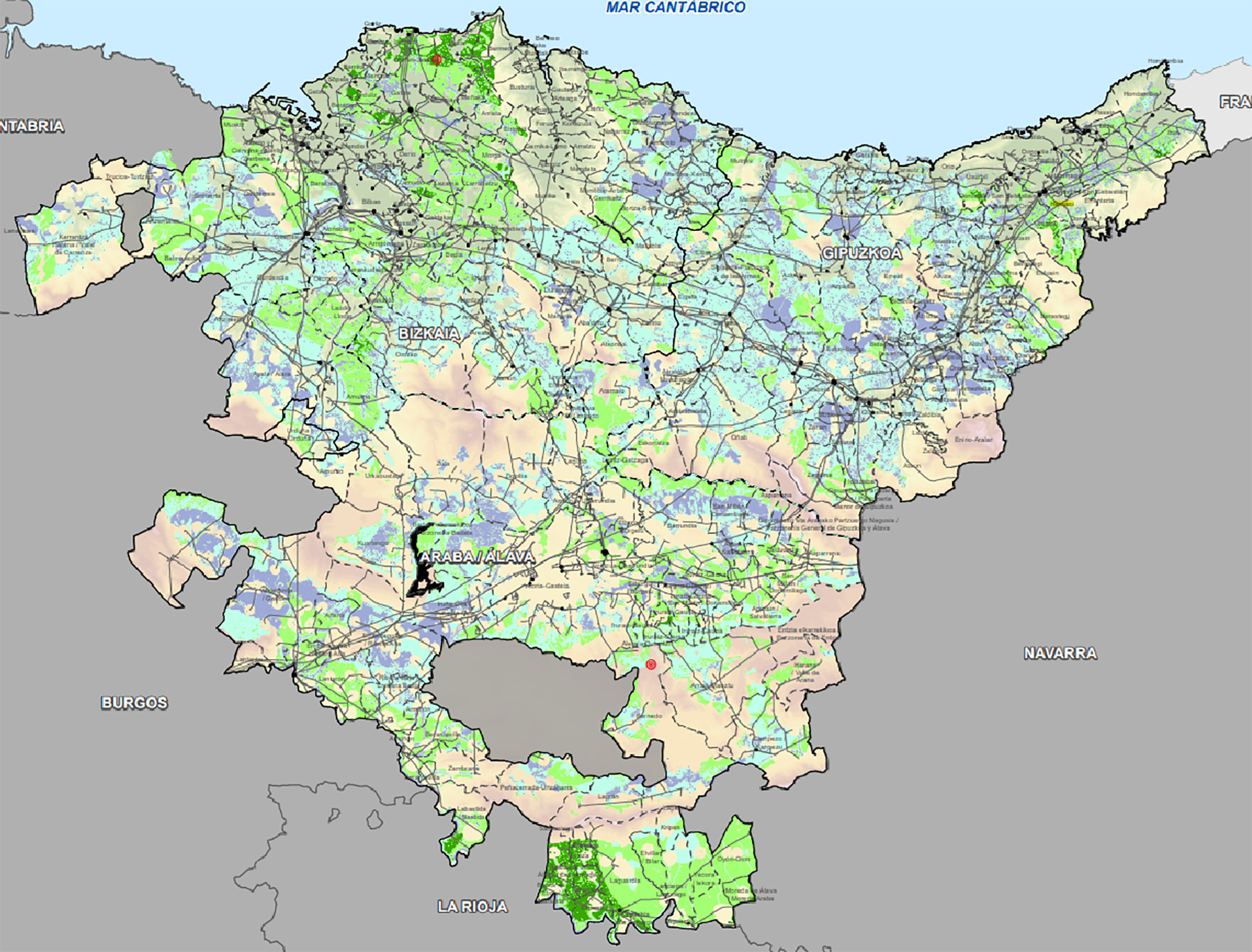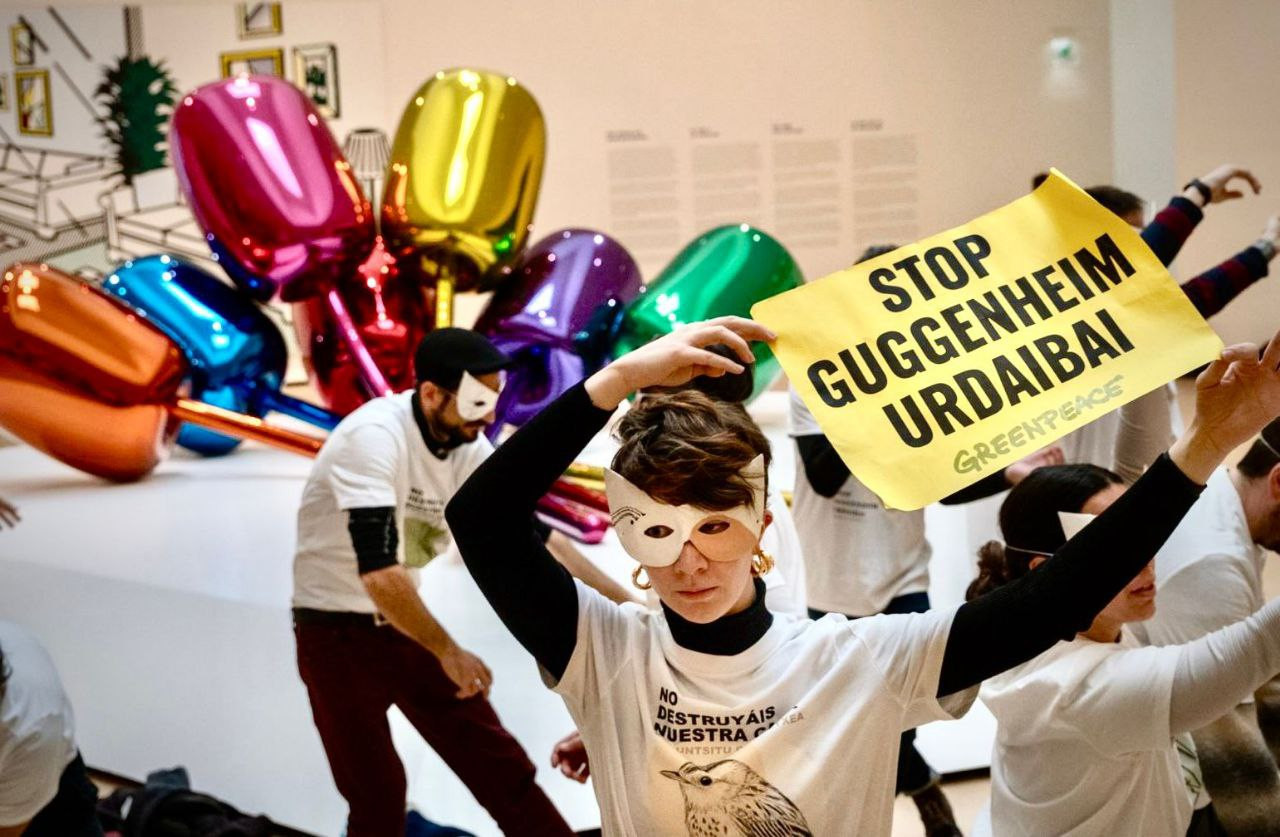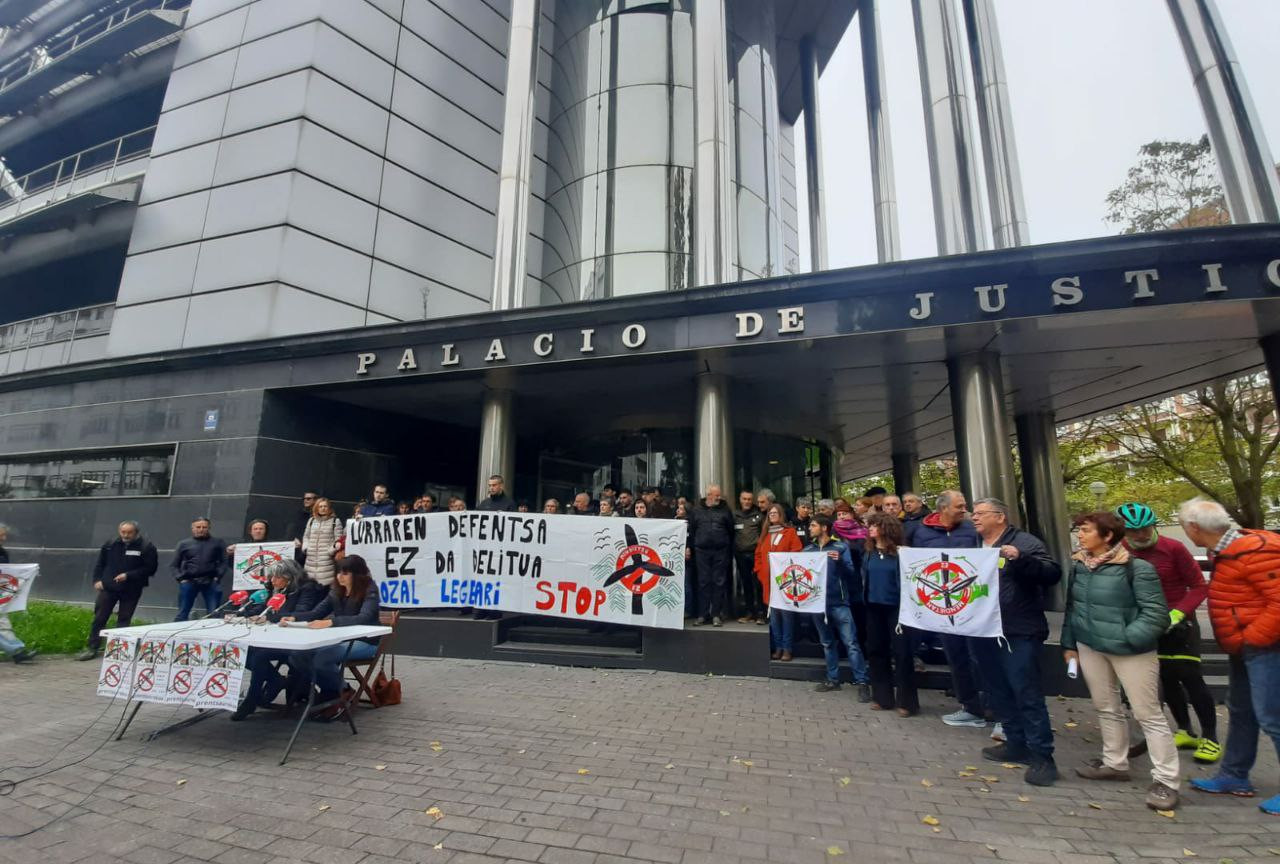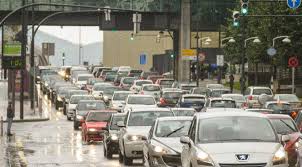"The key is the regeneration of communities, the rejection of individualism."
- Last crisis. Our time! ARGIA has spoken with Alaitz Ajuriagerra, who has been among the organizers after the completion of the first Ecorates of Euskal Herria, which have recently passed under the motto “Once the first Ecotropations of Euskal Herria have been completed”, to, among other things, look closely at the challenge of creating a transformative and effective Basque ecologist movement. We have also talked about the importance of bringing the environmental struggle from a decolonal point of view, placing the local at a global level.
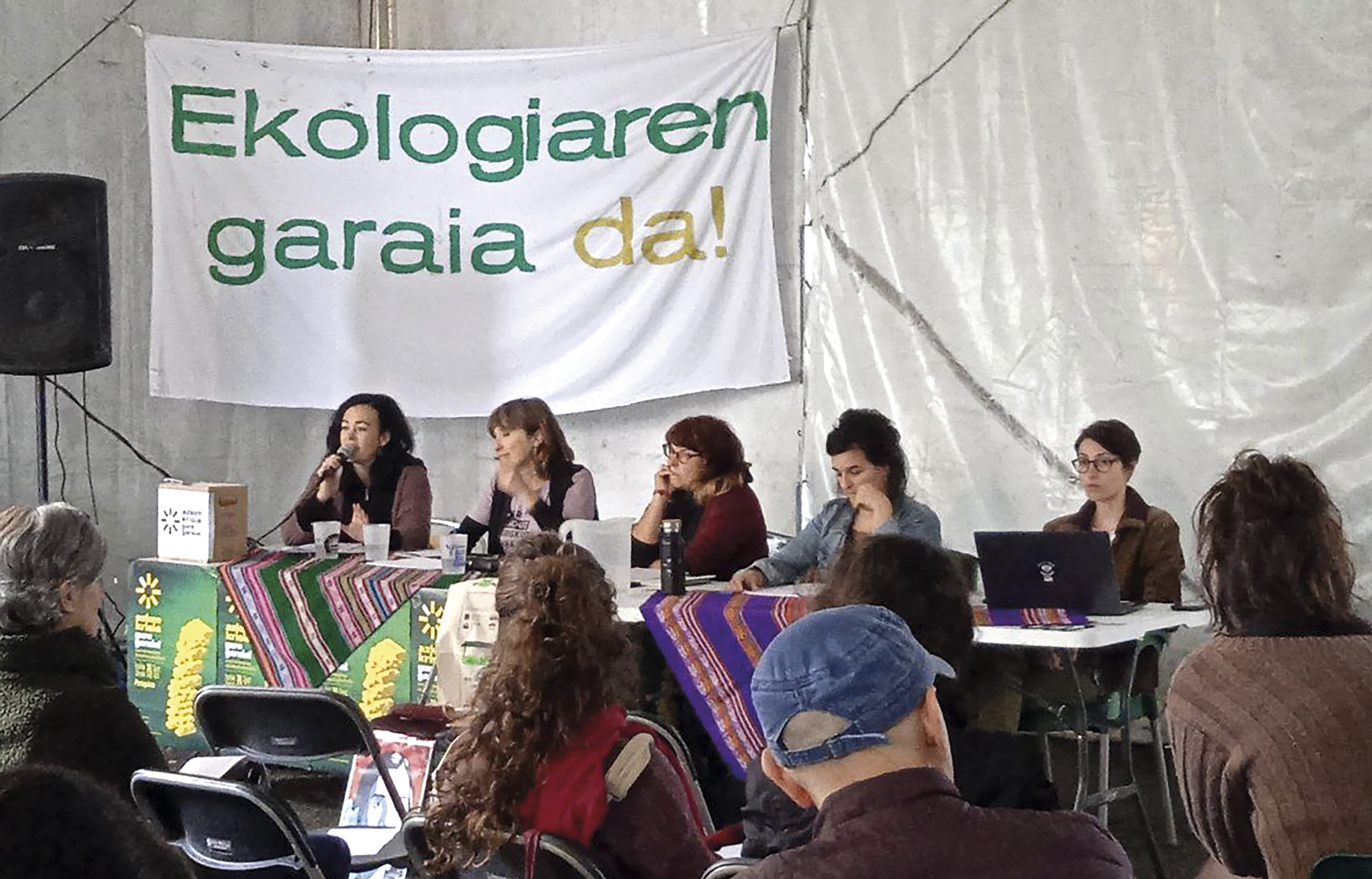
How have you just completed the ecotaxes? Very satisfied, having regard to the reception received.
Very satisfied. We have exceeded our expectations. Our interim assessment is very positive. Ecomeetings have been a quantitative success (many people) and qualitatively (young people and women, lots of energy and participation, intense and multiple debates, constructive vision...).
Do you look at those three days and what would you highlight?
In addition to the answer to the previous question, I would highlight the good atmosphere, the illusion and the strength received to move forward.
Personally, has an idea or a reflection enriched you especially? Do you think of a reflection or reading that has marked you?
It was a pleasure for me to moderate the Ecofeminism round table and listen to the ideas and reflections that the participants contributed. The objective was to discuss the need for alliances and challenges between the feminist movement and the environmental movement, where the contribution of agriculture and/or housing would be highlighted: Need to insert the prefix “agro”. In addition, the global South has raised the need to reflect on the importance of maintaining land control for capitalism and clarifying its hidden, racist, colonial, capitalist and heteropatriarchal bases.
The result of Ecotaxes is also penetration among ecologists or at least the step towards penetration.
Yes, and we must also stress that our objectives have been met: to enter and attract new people. A lot of people came up who are not currently organized in the ecologist movement, about 350 out of 500, which has greatly welcomed us. Concern about the eco-social crisis is growing.
Have people met in Navarre, the Basque Country and the Northern Basque Country or has the national map not been filled enough?
In general, people have approached all countries. It is true that they have been the majority since Bizkaia, taking into account the criterion of accessibility of meetings in Portugalete, but many have come from Gipuzkoa, Navarra and Álava. Perhaps few members of Iparralde, but more organized on this topic, and the integration in Hego Euskal Herria is the wager of this moment, without forgetting the collaboration and experiences.
For the future, in Euskal Herria too, you have put on the table the objective of promoting and implementing the environmental wave. What would be the characteristics of that wave?
Many of us see that degrowth is the way, the key is how we move that transition forward. forced or planned?
I would cite the concept of transversality. Because in our daily lives, environmentalism drives us in everything or in many things, even if it's not conscious. The main objective should be to reach society. The easiest thing is to attract convinced ecologists, but as allies we need politicized and active people on other issues, and the horizon will be to activate non-politicized people in environmentalism. It won't be easy, let's go step by step.
The decolonial approach is of great importance in this matter. The colonialist face of our consumption cannot be denied: both our phones and our computers store the mineral exploitation that destroys the peoples of the Southern Hemisphere, as well as the wind and solar plates that we have for our “green” energy. What about our consumption?
No simple questions are answered. The eco-social crisis must be understood as a whole, as must global geopolitics and the logic of the capitalist market. Consumption can be large, but above all I would highlight three types of consumption in the current world war: energy, food and electronics. Having said that, I do not want to devalue the consumption of tourism, textiles or clothing and others, which also have a major influence on the colonized countries: not only on the exploitation of minerals and raw materials and their impact on the environment, but also on the expropriation of land, social rights and labour exploitation. In this respect, I believe that we need to reflect deeply on our ecological footprint and on colonial debt.
In the end it seems that the road is degrowth. How can it be processed? One speaker said that “we have to delude what we will be satisfied or perhaps more satisfied with consuming less”. How can this be achieved?
Many of us see that the path is degrowth, and the key is how we're going to reduce our consumption and how we're going to channel that transition: by forcing it or planning it. And it's that raw materials and minerals are running out, and or we'll have to reduce our own lives. But that requires profound transformations, and what worries me is whether society is aware of it and will be prepared for it, because capitalism and consumerism are very attractive. Furthermore, the various governments want us to understand that the crisis we are experiencing is cyclical, which is structural, cannot be denied. I believe that there is still a lot of work in pedagogy and awareness to do, and society should not be considered foolish. Explaining the situation in a simple and understandable way will make it easier to ignite the illusion that living with less will be happier. And not only that, the planning of such growth would also facilitate the work, for example, because the changes will not occur only in individuals, because the productive model will also have to be adapted, the energy sources will also have to
be changed... To channel all this, it is necessary to distribute wealth, care and employment – let us not forget to incorporate and put into practice the feminist perspective, in short, putting life at the centre.
Although ecologists have long been active in many parts of the Basque Country, the political institutions and authorities do not take into account their contribution. How can this be changed?
We can turn it around with a strong environmental movement and reach agreements with the other agents, unions and parties. I would say that so far both the environmental movement and the political institutions and actors have dealt with environmental problems in a sectoral way, but it is essential to analyse the situation as a whole. For example, today we are in competition with energy, materials and raw materials that has accelerated the need for the energy transition. In the short and medium term this will affect individual consumption, the production model, jobs, the environment, a process of impoverishment with significant economic and social repercussions. The debate is therefore not just about renewable energy, but also about energy poverty, land use planning, food, access to housing, migration, the reduction of public services and social benefits. It will not affect all people in the same way – as always, women and people migrated and racialised will be the first to suffer all these consequences. And let us not forget that as a people we are not independent in making decisions. I believe it is important to create alliances and to cooperate – it is a personal opinion, because so far we have not had such debates yet.
Our goals have been
met: getting in and attracting new people”
Many of us have trouble ruling out pessimism because difficult times come. You have no intention of staying in that feeling. How can we maintain hope and optimism?
It seems that ecologist movements and researchers are pessimistic, that those who say we're collapsing are in a bad mood -- but it's a joyful movement, in favor of life. The key is the regeneration of communities, the marginalization of individualism and the collaboration and care between us, the change of values and the achievement of small triumphs together from our smallness. The situation will not change overnight, the eco-social transition will be a long process and the participation of all will be fundamental.
Now specifically, how would you want to root the story in the Ecotaxes?
What's important right now is getting in, bringing people together to this movement. We have to channel the force and the illusion that we saw and felt in ecotaxes and, in general, disseminate our message and our passion for struggle. It's going to be a process, and we have a lot of travel ahead. We start with a dynamic or participatory campaign around a specific theme. We'll see where it takes us and how it's going to affect us. Everything is yet to be designed and implemented, but for this we are prepared a sympathetic, plural and excited team. That's no small thing.
Dakota Access oliobidearen kontrako protestengatik zigortu du Ipar Dakotako epaimahai batek erakunde ekologista, Energy Transfer Partners enpresak salaketa jarri ostean. Standing Rockeko sioux tribuak protesten erantzukizuna bere gain hartu du.
Sareak nabarmendu du Euskal Herri osoko eragileak daudela bertan eta deialdiak 140tik gora atxikimendu jaso dituela: "Horrek islatzen du zein den gaur egungo errealitatearen urgentzia, lurraren defentsaren beharra eta auziarekiko dagoen konpromezua".
Greenpeaceko kideak Dakota Acces oliobidearen aurka protesta egiteagatik auzipetu dituzte eta astelehenean aztertu du salaketa Dakotako auzitegiak. AEBko Greenpeacek gaiaren inguruan jasango duen bigarren epaiketa izango da, lehenengo kasua epaile federal batek bota zuen atzera... [+]
In recent weeks we have been reading "proposals" for the recovery of the railway line Castec-Soria and the maintenance of the Tudela train station in its current location, or for the construction of a new high-speed station outside the urban area with the excuse of the supposed... [+]
The restoration of the natural characteristics of the beach of Waukee began three decades ago and continues without interruption in the staged restoration to counterclockwork.
Samuel (Bizkaia) is an exceptional space, very significant from the natural and social point of view... [+]
The update of the Navarra Energy Plan goes unnoticed. The Government of Navarre made this public and, at the end of the period for the submission of claims, no government official has explained to us what their proposals are to the citizens.
The reading of the documentation... [+]














